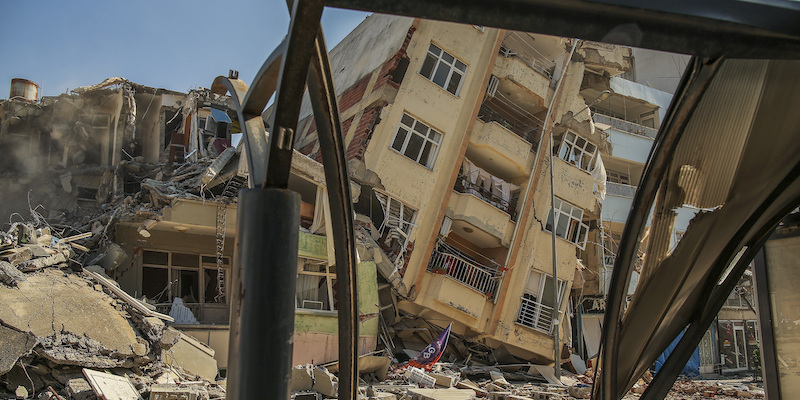In Turkey, where there was a very serious earthquake in early February that caused tens of thousands of deaths, the journalist Mir Ali Koçer was arrested for his work covering the incident, accused of spreading disinformation. At least four other journalists are under investigation on the same charges, and there have been dozens more arrests, according to some freedom of information groups.
Ali Koçer and the others risk up to 3 years in prison: the investigations against them add to other repressive measures taken by Turkey against the media who covered the earthquake and criticized the government’s management of relief efforts, widely contested in these weeks because it was considered slow and inefficient.
Ali Koçer was arrested under a law approved by the Turkish parliament last October: it provides for very severe penalties against the spread of what the government considers “disinformation”. It was commissioned by President Recep Tayyip Erdogan, who has ruled the country in an authoritarian manner for years, and is much contested by opposition parties and various international organizations because it is considered harmful to freedom of expression in Turkey.
Specifically, Ali Koçer was arrested on the basis of one of the most contested articles of the new law, the one which provides for up to 3 years in prison for journalists and Internet users who publish content that could “create fear and disturb public order”.
Ali Koçer is a Kurdish journalist, that is, part of a population discriminated against and repeatedly attacked by the Turkish government, and in the past he had worked for various information sites in opposition to Erdogan. On the night of the earthquake, which also struck Syria and caused the death of at least 50,000 people, he had gone to Gaziantep, a city where at least 3,000 people died as a result of the earthquake. He had filmed the damage caused by the earthquake and interviewed several people who complained of the absence of relief efforts, then disseminating the contents on his Twitter account.
– Read also: Turkey’s controversial law against disinformation
